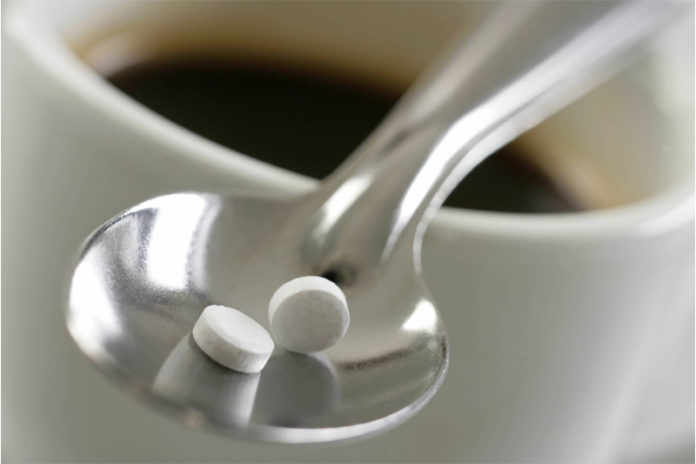
Scientific review requested by the WHO does not find benefits, only a slight weight loss
MIGUEL ÁNGEL Created
Non-sweetened sweeteners are not much better than sugar or at least there is no evidence of that. It is the main conclusion of a review of what science knows about these substances. The report, requested by the World Health Organization (WHO), found no significant evidence that these non-caloric (and low-calorie) compounds have beneficial health effects in addition to a slight weight loss. The authors of the study and other specialists remember that foods without sweeteners and water are the best sugar substitutes.
The demonization of sugar came along with the divinization of non-sweetened sweeteners. The first sucrose was related to obesity, dental caries, type 2 diabetes and changes in heart rhythm, among other diseases. Therefore, health authorities recommend reducing their intake, especially among the newer and specific risk groups. The withdrawal of sugar gave rise to several sweeteners, between artificial and natural, such as saccharin, which for decades was a medicine to diabetics, aspartame, acesulfame K and stevia (extracted from the plant stevia rebaudiana). All these substances are between 100 times (the Luo Han Guo plant) and 20,000 times sweeter (the Advantame, a new high intensity sweetener) than sucrose, according to U.S. FDA data. Most have zero or few calories.
These two realities caused the consumption of sugar to decrease, while the non-sweetened sweeteners fired. In the U.S., for example, the number of people using the latter increased 54% since the beginning of the century. In the case of children, the percentage rose 200%, a number related to soft drinks. There is, however, no consensus among scientists and physicians about the long-term effects of these alternatives to sweeten life.
The Who is preparing a guide on non-sugary sweeteners and, as a starting point, asked a group of scientists for a state of the matter. The researchers tracked the publications and scientific studies that analyzed the effects on various aspects of the health of all and some of these sweeteners, comparing them with sugar and placebo substances. Among the studies included those focused on healthy people, adults and children, and those with overweight problems. In total, they found 56 researches and their results and conclusions were published in the British Medical Journal.
“There is not enough evidence to definitively assess the benefits and, in particular, the possible long-term effects of non-sugary sweeteners,” says the researcher at the Institute for Medical Evidence at the University of Freiburg (Germany) and main author of the study, Joerg J. Meerpohl. “There may be a slight effect on short-term weight, but we do not have high-quality data that confirms it in the long term,” he says. And “We also have no consistent evidence of negative impacts posted to health,” he adds.
The scientific review sought impacts on weight, blood glucose level, dental health, cardiovascular diseases, liver disease and even cancer. He also reviewed studies on the effects on mood, behavior and eating habits. Although not all studies compare sweeteners and sugar, in general terms the supposed beneficial effects of sweeteners are very scarce. In studies with adults focused on weight, for example, the mean loss among those who took sweeteners was not greater than 1.3 kilo. Perhaps the most remarkable effect is the reduction of blood pressure in overweight adults. Among the ten studies with children, two of them showed a slight gain in body mass index among those who took two artificial sweeteners, sucralose and acesulfame K.
Meerpohl clarifies that more studies are needed before the WHO publishes its recommendations on sweeteners, planned for the end of the year. On whether despite everything are better than sugar, recognizes that it is a difficult question to answer, whose response depends on the measured result and the amount of sweetener. It is also not known the long-term effect of the combinations of two or more sweeteners, something common in soft drinks, for example, to achieve and approach the characteristic dulcet of the under RIS
“The results of this study are not surprising and confirm the idea that non-artificial sweeteners are not the magic wand to prevent obesity,” says Tom Sanders, a professor of nutrition at King’s College in London. “Replacing sugary beverages with artificial sweeteners helps prevent children from gaining weight, but does not surpass the ideal alternative, water,” he says.
The researcher at Purdue University Susan Swithers has been studying the relationship between nutrition, metabolism and brain for years. “So far, science is showing that sugar substitutes don’t really help much and that people who consume them in the long run end up with less healthy results than people who don’t use them. We do not know exactly why this occurs, but there may be more than one reason why sweeteners are not necessarily healthy options, “he says.
Among the possible explanations may be the alteration of the equilibrium of the intestinal microbiota, pointed out by some studies. They can also interfere with the signals that link the sweet flavors and energy in the brain. And they can just make people take bad decisions about how much to eat.
“Sweeteners activate the brain differently from how sugar does it,” says Swithers, in question unrelated to the current study. “The specific mechanisms that produce these changes are not yet well known, but it seems that our brain has different paths to detect if something tastes sweet and brings energy. Typically, these pathways can be activated jointly, but sugar substitutes activate ones, but not others, “he says.
The International Association of Sweetener, which gathers much of this industry, reacted to the study highlighting the part that confirms the connection between sweeteners and weight loss and dental hygiene. It also questions that the review in charge of who excludes some studies on soft drinks and young people that would show a weight loss, and their long-term maintenance among young people who drank sugar-free soda compared to those who drank them with sugar.














